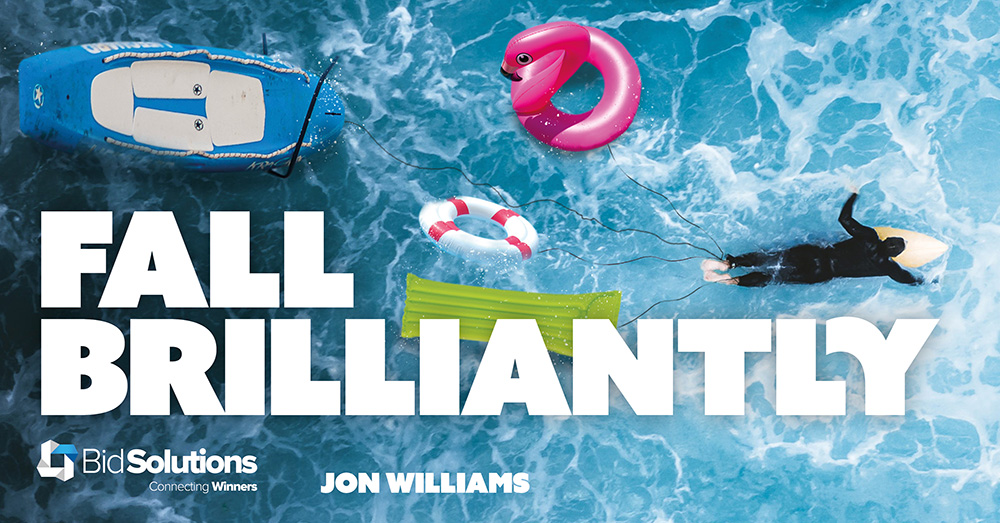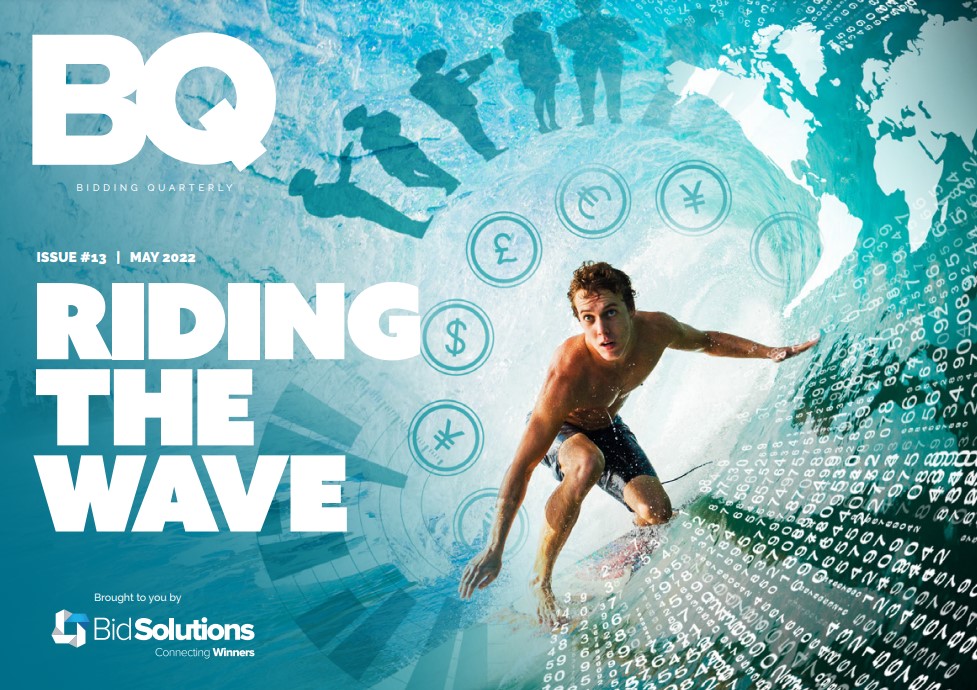
Back in my days as a professional surfer in Australia, I always used to say: “It’s not what you do on the crest of the wave: it’s how you get ready to fall off.”*
We’re in boom times. Jobs are a-plenty right now. Consultants – at least the good ones – have never had it so good.
But boom’s invariably followed by bust, right? Because it’s easy right now to take the money, to work flat-out chasing all of those RFPs, to reap the benefits of the good times. But bidding for most of us isn’t a temporary gig: it’s our career, our ongoing livelihood. We’ll all go through the inevitable ups and downs of the economic cycle.
So here are half a dozen things I suggest you ponder, to position yourself so that the fall – whenever it happens – isn’t too hard and you’re best placed to respond when things do get tighter:
- Move jobs – maybe. If you’re working for a company that takes advantage of the goodwill and hardworking ethic of its bid and proposal people, now’s the time to find somewhere that will treat you with more respect. (Simple test: if you’ve already worked three weekends in 2022 without truly wanting to do so, get out.) Likewise, if your company talks the talk about best practice but you feel like you’re eternally pushing the stone uphill to get anything done, there are places out there that “get it” – who are investing to strengthen their already good practices and are probably looking for great people.
- Think about the job after next. Few readers of BQ are in the role right now that they’ll be doing until they retire. So where’s your career really going? What characterises you as a bid and proposal professional? Do you want to specialise in certain areas of the process? What sectors fascinate you? Does consultancy appeal as a vocation? Where do you really want the waves to take you?
- Build your skills. Sit down and do a thorough assessment of your current strengths, weaknesses and priorities for development. And make sure you push yourself to the next level, so you’re the one who stays afloat when we all come off the wave. (Bid and proposal people love talking, right? And even the least insightful webinars and meetings bring some insights – even if it’s just the confidence that comes from “I know all this already”.)
- Build your network, get to know people and get known. This is the time to tell your boss they really do need to sponsor you to attend events and conferences – if they want to keep you, motivate you, and see you continue to grow in your career. APMP has emerged from the debacle of its failed rebranding last year stronger than ever. Be part of it. It’s ours.
- Get certified. If you’re truly a bid / proposal leader and you’re not yet an APMP Professional, what are you hiding from? Atop the wave, you should be leading by example. If you’re doing great things running bids, get your Practitioner qualification. If you’re not certified at all, join the family: it shows that you’re serious about a career in our profession. And look, too, at the newer and emerging micro-certifications: Capture. Writing. Price-to-win (the “next big thing” that’s starting to be increasingly in vogue).
- Make time for yourself. Riding the wave takes energy. Lots of it. It’s draining. It’s never been more important to pause for breath between bids, to find that recovery time. To go for a long walk in the middle of the day. To spend time with family and friends. Let’s not let the boom lead to a wellbeing crisis.
We’re still in the midst of a pandemic. The global energy crisis is worsening. There’s war in Europe (particularly personally painful, as I’ve had family links to Ukraine and spent a lot of time in Kyiv). The warning signs are all there. So enjoy riding the wave: it’s exhilarating. But make sure this is a time that positions you for the next stage of your career success.
And whatever you do: do great things. There’s money there right now for organisations to invest in getting better. Be the one who helps yours to do just that.
* Or at least I would have done, had I ever been a professional surfer!
This article was written by Jon Williams.

